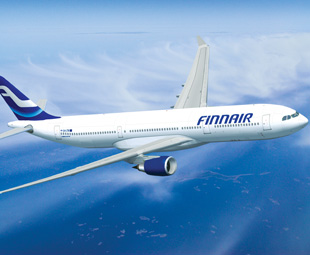Aviation acing it

Air transport has come a long way since the Wright brothers took to the sky in 1903. We take a look at some improvements being implemented by airlines and find out how others are honoured for their achievements.
Just over a year ago, in the February 2014 edition of FOCUS, we reported that aviation, if it was treated like a country, would be the seventh-largest source of carbon dioxide emissions globally. This transport sector produces around two percent of the world’s human-induced carbon dioxide.
The industry is doing its part to lessen these effects however … five airlines have successfully completed stages of the International Air Transport Association (IATA) Environmental Assessment (IEnvA) programme. This voluntary, two-stage evaluation process is designed to drive airline environmental performance improvements through independent assessment. The process uses environmental standards and recommended practices developed specifically for the aviation sector by a joint team of environmental experts from within and outside the industry.
Finnair and South African Airways have completed the IEnvA Stage 2 assessment, the highest level of IEnvA achievement. This ensures that an airline has implemented all of the IEnvA Programme Standards, identified and mitigated its significant environmental impacts, and has set performance targets. Stage 2 also certifies that an airline has developed processes for monitoring and reviewing its performance against its environmental targets and objectives.
Icelandair, Qatar Airways and SriLankan Airlines have completed IEnvA Stage 1, which ensures an airline has established a foundation and framework for its environmental management system.
Stage 1 also certifies that an airline has identified and complied with its environmental legal requirements.
These five airlines join a growing number of carriers that have already successfully completed IEnvA Stage 1 assessments, namely Air Transat, Kenya Airways, LATAM, LATAM Cargo and Malaysia Airlines.
“In addition to safety, environmental responsibility is the highest priority for the industry,” says Tony Tyler, IATA’s director general and CEO. “The new IATA Environmental Assessment sits alongside our industry-wide, carbon-reduction targets as a programme for ensuring airlines not only meet, but also exceed their day-to-day operational environmental obligations and performance.”
The IEnvA assessments – which are conducted by accredited, independent organisations with competencies in aviation and environmental auditing – measure environmental performance against sustainability standards across a broad range of disciplines. This includes (but isn’t limited to) the management of air quality and emissions, noise, fuel consumption and operational efficiency, recycling, energy efficiency, sustainable procurement, and biofuel utilisation.
As a result, IEnvA helps airlines to simplify regulatory compliance, demonstrate good governance and achieve financial savings from the better use of resources. The programme adopts a modular approach, initially focusing on flight operations and corporate activities at a global level, with later expansion into other activities including catering, ground operations and maintenance, repair and overhaul.
Tyler continues: “Our congratulations to Icelandair, Qatar Airways, and SriLankan Airlines for completing Stage 1. I would particularly like to commend Finnair and South African Airways for being the first to complete the Stage 2 assessment. These airlines are among the pioneers in this critical new programme.”
He adds that the IATA’s audits and assessment schemes are impartial, independent evaluations designed to improve industry performance against global benchmarks. “The IATA Operational Safety Audit has done much to help improve airline safety and we expect that the IEnvA will do the same for environmental standards.”
The IEnvA programme is complementary to the aviation industry’s four-pillar strategy for addressing climate change impacts. In 2009, the industry agreed to cap emissions through carbon-neutral growth from 2020, and cut net emissions by 50 percent (compared to 2005) by 2050, through a combination of technology and operational improvements, better use of infrastructure, and the implementation of a global market-based measure.
Environmental standards aren’t the only aspect that is growing in efficiencies, however … Emirates SkyCargo, the freight division of Emirates, was awarded the Global Cargo Airline of the Year award earlier this year at the Air Cargo Africa 2015 awards hosted by STAT Times, an international multi-modal transport trade news source that specialises in aviation and air cargo.
Air Cargo Africa is an international air cargo event held every two years, serving as an industry platform to showcase one of the economy’s key sectors. With its award, Emirates SkyCargo completes a hat-trick of wins having picked up the accolade twice before in 2011 and 2013.
Emirates SkyCargo also won the Air Cargo Brand of the Decade. Pradeep Kumar, Emirates senior vice president of cargo revenue optimisation and systems, received the awards on the airline’s behalf from Glyn Hughes, director of cargo distribution at IATA.
Speaking at the occasion, Kumar said: “We are honoured to receive this recognition, voted for by our customers and partners. We believe these accolades are an important endorsement of the hard work by our various teams around our global network and hub in Dubai.”
Closer to home, O.R. Tambo International Airport walked away with the title African Airport of the Year. “We are especially proud as this is the second time in a row that our airport has been bestowed with this accolade,” says Bongiwe Pityi, the general manager of O.R. Tambo International Airport. The airport first won the award at the second Air Cargo Africa instalment in 2013.
“Together with our excellent location, accessibility and connectivity, O.R. Tambo International also has great and reliable infrastructure,” adds Pityi. “We also collaborate well with the relevant stakeholders to continue providing efficient service to our cargo customers.”
The African Airport of the Year award comes hot on the heels of Airports Company South Africa’s signing of a cargo management cooperation agreement with Mitteldeutsche Airport Holding of Leipzig/Halle Airport. The agreement, signed at Air Cargo Afirca, will expand international air cargo market opportunities, and elevate the status of both airports in the air transportation industry. The strategic partnership will involve the exchange of information and individual expertise along with cooperation in customer acquisition.
Published by
Focus on Transport
focusmagsa




